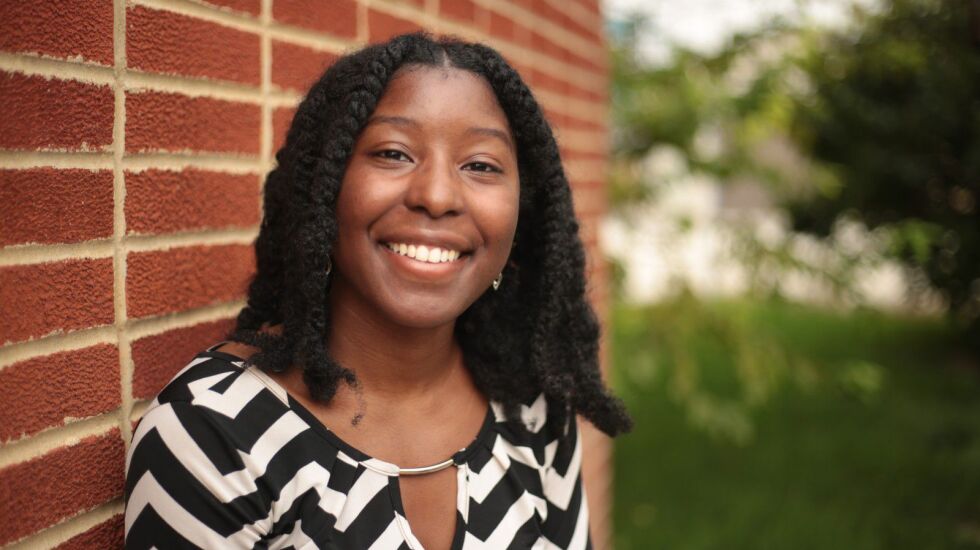
Brianna Kidd was in her third year after graduating from college when she started to panic.
The Brookfield resident was working and paying her monthly student loan bill. But her minimum payment still wasn’t making a dent in her balance.
“It just cripples you,” Kidd said, “when you see that you’ve gotten nowhere.”
Kidd, 30, had graduated from Elmhurst University in 2015 with a bachelor’s degree in psychology — and $42,000 in student debt. For three years, all of her monthly loan payments had been going toward interest, not the principal.
It was a turning point for Kidd, who, as a Black woman, is part of the demographic most heavily burdened by student debt. A year after completing a bachelor’s degree, Black women have, on average, $38,800 in federal loans, according to research from the nonprofit The Education Trust. That amount, which is close to what Kidd owed, far exceeds the average debt of people in any other group.
“It’s scary not just that they have the most debt, but they’re less likely to get higher paying jobs, are less likely to own homes … are less likely to start businesses,” said Kidd, who works as a claims adjuster for National Van Lines in Broadview. “The list just keeps going on and on.”
Black women often have to borrow more to pay for college and usually make less after graduating than their white classmates, making it harder to pay it back, according to The Education Trust, which found that Black women with a bachelor’s or higher and full-time employment had median earnings of $60,681 in 2020, compared with $91,805 for white men.
Kidd knows this. And it seems to have lit a fire within her.
“When it comes to this aspect of my life with these student loans, I refuse to be the statistic,” she said. “I want to be the outlier. And I will be that. Give me two more years. I’ll be done with this.”
Kidd realized that she needed to pay more each month to cover the interest and chip away at the principal she owed. In a notebook, she drafted her 10-year plan — how much she needed to be paid an hour to make a real difference.
“I started working two jobs to try to make these ends meet and also to be able to save,” she said.
She said she stuck to a strict budget and cut back on eating out, even at Potbelly’s, for which she describes herself as a fanatic.
Then, when the payment pause was announced at the start of the COVID-19 pandemic in 2020, Kidd said she not only continued to make payments but made bigger ones.
“I would pay a lump sum,” she said, “then just knock another one out, knock another one out.”
Because interest was on pause, all of her payments went toward her principal. Scrimping and scrounging, Kidd brought her balance from $37,000 to $10,000. Now, she’s on track to pay off her loans in two years.
“I can’t wait,” she said. “I’m so excited to be done with this. Because then I get to start my life.”
Kidd might soon be debt-free, but getting to this point has required some tough choices.
“My story isn’t a one-size-fits-all for everyone,” she said.
She considered graduate school but decided against it because she didn’t want more debt. She works two jobs — as a claims adjuster and an insurance agent. When she finishes working her 9-to-5, she goes home and works for a few hours more. And she lives with her father.
“I don’t have my own house, I don’t have my own apartment,” said Kidd, who grew up in Westchester, not far from where she lives now. “I do pay rent, but I don’t have to pay for rent and utilities all by myself.”
She dreams of buying a house with enough kitchen counter space to cook meals with her favorite spices — smoked paprika and cumin — and two bathrooms.
She thinks she can start saving for a down payment after her debt is gone.
“I’ll be able to be in the beginning steps of adult-ing, like I’ve always wanted to,” she said. “I just wish it didn’t take me up until I was 30.”







